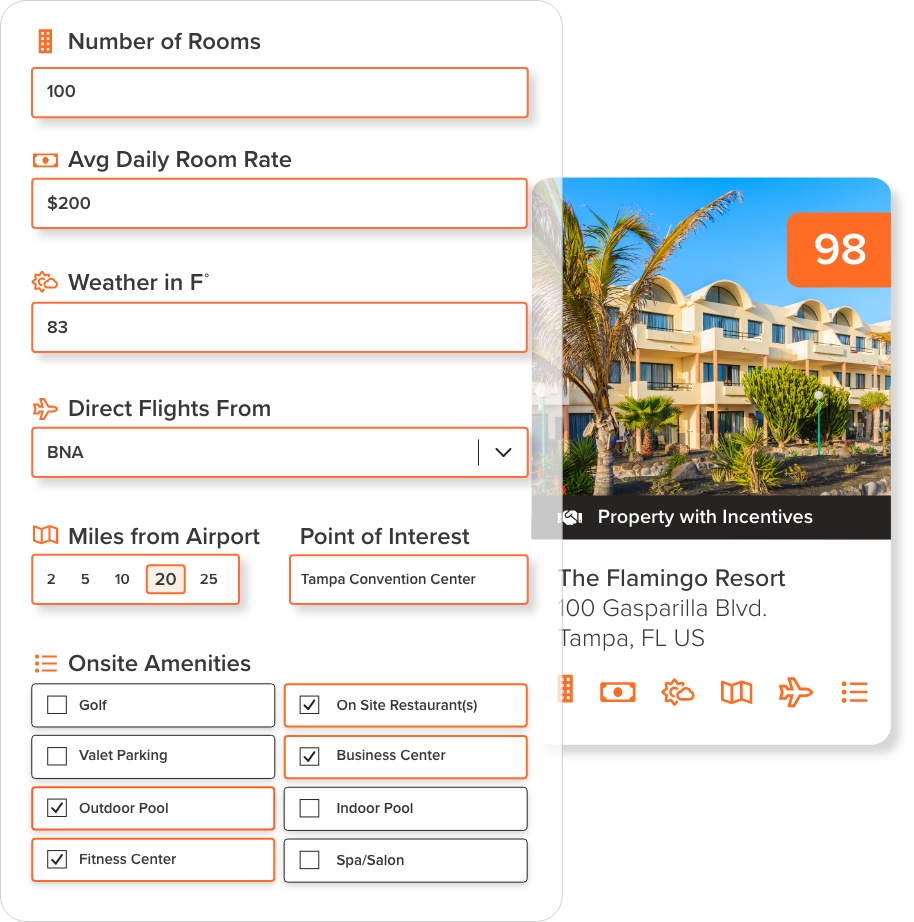Looking for ways to minimize your company’s environmental impact when hosting events, meetings, or groups? Of course you are. Group travel might raise concerns when sustainability is a company priority, but sustainable event planning is still achievable, even if attendees must travel from several cities to reach your event.
We’ve entered a new era of group travel, and travel’s effect on climate change can’t be ignored. While it’s difficult to be 100% sustainable, there are still ways to make a small impact and highlight the importance of sustainable practices.
What is sustainable travel?
Sustainability is promoting and undoing harmful human impact on the natural environment, including an economic, social, and supply chain perspective. Earth-friendly travel is the effort to minimize all-round impact, often focused on lowering carbon emissions.
For businesses, the desire to embrace this worldview can conflict with cost containment: Sustainability often comes with a higher price tag, particularly as travel prices rise.
Create more sustainable group travel practices
Environmentally-minded organizations, group travel organizers and event planners grow closer to sustainable travel practices simply by booking hotels smarter. A shift in perspective — such as choosing a lesser-known location, patronizing local businesses during travel, and actively reducing waste at your event — contributes to a positive impact.
Here are four tips to get started:
1. Put on your walking shoes
Cut down on fuel use and greenhouse gasses from driving to and from your selected venue by booking hotels within walking distance.
With GroupSync Marketplace, you can achieve exactly that: Filter your search by address and proximity so results meet this criteria. Searching, sourcing, and booking for a solution matching your needs, budgets, and amenities has never been easier.

A walking commute is also the best way to get to know the city you’re visiting, making you more likely to duck into a local bagel shop and put money back into the community.
“[Shopping locally] allows for a more circular economy, which affects other sustainability factors like cultural protection, local sourcing, and so on,” said Jaclyn Yost, founder and CEO of ecomadic, an online green travel magazine.
When walking is a challenge, comfort doesn’t have to sacrifice sustainability: Many cities’ public transportation systems make it easier to get from A to B, though unfamiliar attendees could be transportation-shy. Research and share how to use public transport so your group feels comfortable. Or, you might also plan ahead so your group has a clear carpool plan.
“Event planners should make sure to consider ADA and accessibility needs when planning their event to be truly sustainable,” said Hazel Horvath, founder and CEO of Ecolytics, which works with businesses to assess and improve their environmental impact.
Bonus point: If carbon-intensive air travel isn’t a must—say you’re traveling within Europe—opt for the train. Pluses of railway travel include site-seeing opportunities, group socializing, work time, and rest.
2. Book hotels with onsite amenities
Event planners can make it ultra-easy for attendees by booking a meeting space and accommodations at the same venue to reduce the need to travel. Beyond a commute, though, consider a hotel’s additional offerings, accounting for every beat of a guest’s experience:
Transportation:
Does it have an airport shuttle?
Can you rent bikes or does it provide bike storage?
Are there electric vehicle recharging stations?
Will it subsidize public transportation passes?
Temperature regulation:
Does its meeting rooms have digital thermostats?
Are there occupancy sensors to control temperature and lights?
Housekeeping:
Does it track water usage and have a conservation practice?
Are there water bottle refill stations?
Do guest rooms have bulk shampoo dispensers?
Bonus point: A hotel’s amenities can go beyond a one-off experience. Hotels that are really embracing these efforts think long-term, like vegetable gardens, beekeeping, timed landscaping water systems, green infrastructure, monthly beach cleanups, and donating extra food. These hotels are growing from a “me” responsibility (a single guest’s stay) to a “we” responsibility (contributing to the community at large).
3. Reduce waste
Once working with a venue that has the same Earth-first approach, planners need to think through their own event supplies: name tags, signs, and the many paper products that are often trashed afterward.
Not only can you move to suppliers that make the green choice their standard, you can reduce plastic use, single-use signage, plastic straws, and more. Some small shifts that have a big impact:
● Event signage listing the date → Signs with generic branding (can be reused)
● Mandatory attendance → Optional attendance (incorporating virtual attendance)
● Swag bag with useless items → Canvas swag bag with metal straw, reusable water bottle, a natural fiber bento box, ballcap made from recycled fabric, biodegradable ballpoint pen, etc. (More ideas can be found here.)
Bonus point: Make sustainability part of your meeting or event’s program. Point out what efforts have been taken—here are the recycling bins, these are compostable forks, this is why we’re using a QR code instead of printed materials—so the conversation is encouraged to continue.

4. Push hotels on their sustainability policy
Hotels that have incorporated sustainable practices are likely already touting their efforts. Some, like Marriott International, are being recognized for their commitment.

Yet organizations and companies say they feel held back by their inability to determine the authenticity of sustainability claims. The commonly used term “greenwashing” is when a company misleads consumers about its environmental efforts.
A hotel’s sustainable practices may not be entirely altruistic, of course. Just think about when the hotel industry moved to let guests skip new towels each day. This saves water, sure, yet it also lowers a hotel’s laundry costs.
Ask hotels to be specific about how they incorporate sustainable practices, and request a copy of their environmental policy. When communicating with hotels via a GroupSync RFP, questions to ask include:
1. Do you use renewable energy sources?
2. What steps have you taken to reduce your carbon footprint?
3. Are you able to work with me to make my event carbon neutral?
4. Our event will include some paper and plastic products. How can we reduce on-site waste and make recycling and composting easier?
Bonus point: Research a hotel’s third-party certifications to see how success is measured, as not all are created equal, Horvath said. She recommended looking at how many metrics are tracked and how claims are verified to start with.
Small steps toward social responsibility make a difference
The hard-hit travel and tourism industry is still recovering from 2020 losses of $4.5 trillion GDP and 62 million jobs, according to the World Travel & Tourism Council’s economic and trends report. Yet, the sector remains focused on rebuilding better than before, prioritizing climate and environmental issues “not only on ethical grounds, but also because the travellers of tomorrow will demand it.”
Sustainability is both fashionable and here to stay, and being eco-friendly can feel next to impossible when planning for group travel and events. Yet there are small, minimally intrusive ways to make a lasting impact on the planet. Every little bit helps. Just like how hotels’ sustainability efforts are a win-win for them, so, too, is an organization’s work toward greener travel operations.


